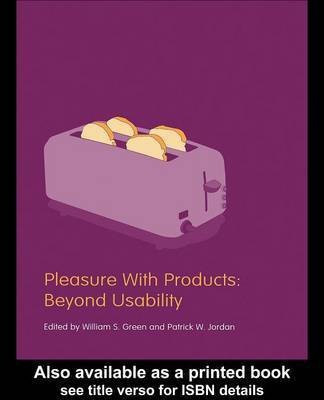Pleasure With Products(English, Electronic book text, unknown)
Quick Overview
Product Price Comparison
The last five years have seen a major paradigm shift in the role of human factors in product design. Previously this was seen as pertaining almost exclusively to product usability, but new recognition is being given to "pleasure-based" human factors. This emphasizes the holistic nature of the experience of person-product interaction. While traditional human factors approaches tended to characterize the user in terms of his or her physical or cognitive processing capabilities, new human factors approaches are concerned with wider lifestyle issues. The quality of a design is judged not only on its fit with a person's cognitive and physical abilities but also depends on how it fits the person's lifestyle and self image -- his hopes, dreams, values, and aspirations. Under the new paradigm, human factors specialists are concerned not only with the interaction design of products, but also with the product's sensorial and aesthetic qualities. Usability may once have been a seen as an added bonus, but consumers now tend to expect a product to be usable and are disappointed if they have difficulties in use. If human factors specialists are to continue to add value to a product, then their contribution must extend beyond traditional usability issues to capture the essence of what makes a product a real joy to use. This book gives an overview of the state-of-the-art in human factors approaches, consisting of specially invited contributions from leading practitioners in both industry and academia.


